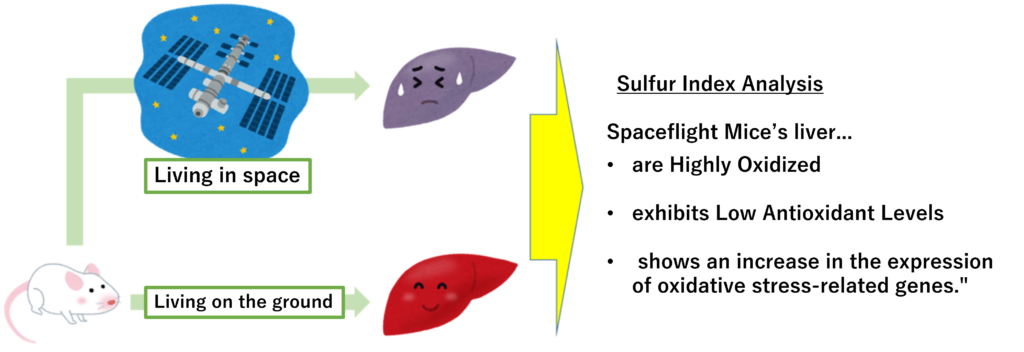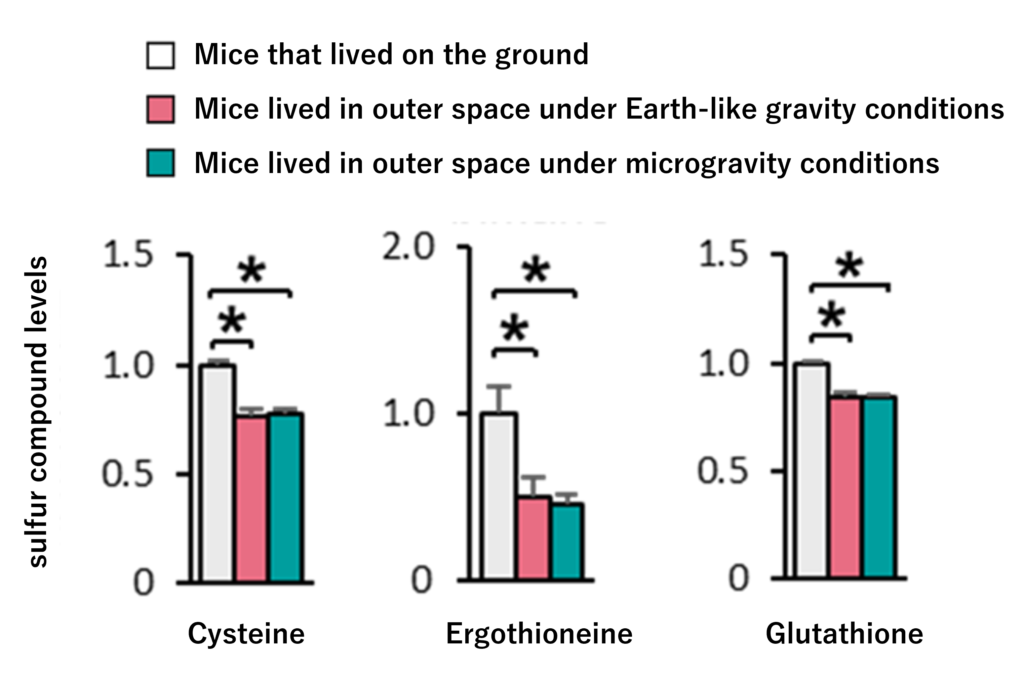
Euglena Co., Ltd. have identified one of the factors that affect the livers of mice during spaceflight!
■ At the Forefront of Space Development
In September 2021, the American company SpaceX achieved civilian spaceflight. What's truly remarkable is that the spacecraft, "Crew Dragon," which achieved this spaceflight, had only civilian crew members who underwent just about six months of training. After a three-day space journey, it safely returned to Earth.

Spaceflight is no longer a distant dream for ordinary people, and the future of humanity living in space is becoming increasingly visible.
However, there are still numerous challenges to be resolved for full-fledged space colonization. Particularly, the impact of space on living organisms remains poorly understood. Space is an environment that significantly differs from Earth in many aspects, not just in terms of its atmosphere. It includes factors like microgravity, exposure to high levels of space radiation, and extreme temperature fluctuations of several hundred degrees Celsius, all of which pose harsh conditions for living organisms.
As a result, organisms that undergo spaceflight often experience unexplained health issues.
Among the most extensively studied subjects in this regard are mice, which are known to develop various liver issues, particularly fibrosis and non-alcoholic fatty liver disease, regardless of the presence or absence of artificial gravity. These conditions can lead to severe liver cancer, emphasizing the need to identify their causes and develop solutions.
■ Analysis of Mice's Liver Returning from Space by Euglena Co., Ltd.
Euglena Co., Ltd. has successfully identified one of the factors that adversely affect the livers of mice during spaceflight using its unique analysis method known as "Sulfur Index Analysis." This method was developed by Associate Professor Iwao Otsuka of the University of Tsukuba.
This technique enables comprehensive analysis of sulfur compounds, which play a central role in redox reactions within living organisms. It helps determine whether the environment within the organism is oxidative or reductive and what triggers these conditions.
In collaboration with Professor Otsuka, our company conducted a special joint research project and analyzed the livers of mice that had undergone spaceflight, courtesy of JAXA, using the Sulfur Index Analysis.

The results revealed a decrease in reductive sulfur compounds in the livers of mice reared in space, regardless of the presence or absence of artificial gravity. These sulfur compounds function as antioxidants within the body. Therefore, it is believed that, as a result of life in space, they were consumed in response to oxidative stress, which serves to counteract this stress.

Furthermore, when examining the gene expression in the livers of mice that had undergone spaceflight, we found an increased expression of genes related to oxidative stress and sulfur compound metabolism. This result suggests that this change occurred as a response to severe oxidative stress and the subsequent decrease in sulfur compounds.
These findings have been published in Scientific Reports, a scientific journal in the United Kingdom, in collaboration between our company's research and development department and the University of Tsukuba. (Link to the published paper: https://www.nature.com/articles/s41598-021-01129-1)
This research outcome is expected to be a crucial clue for humanity to live healthily in space, especially as space activities become more active in the near future. It suggests that the intake of sulfur-based antioxidants could be effective in maintaining health in space. Of particular importance is the revelation from this study that the amount of ergothioneine, an antioxidant, decreases to about half of the levels during terrestrial life due to spaceflight. Therefore, there are high expectations for the development of new space food with high ergothioneine content in the future.
